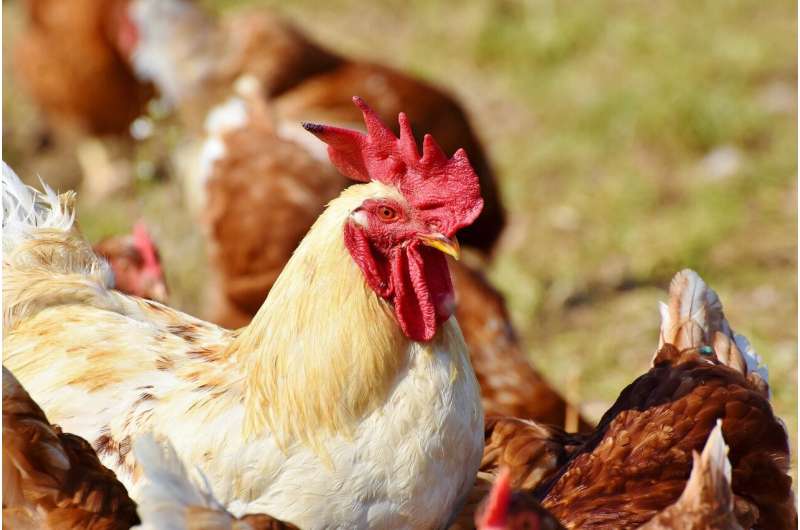Credit: CC0 Public Domain
A team of researchers from Yncréa Hauts-de-France and Université de Tours, has found that the ranging behavior of free-range chickens can impact their motor self-regulation. In their paper published in the journal Biology Letters, the group describes their study of free-range chicken personality and how it impacted their impulse control.
Scientists have found that the world's environment is changing at a rapid pace, mostly due to human activities. And the changes are likely to continue. Because of that, scientists carry out experiments designed to learn more about the adaptability of various species. In this new effort, the researchers sought to learn more about adaptability in a domesticated avian species as part of an ongoing effort to learn more about how birds in general might contend with a rapidly changing world.
A characteristic of most species is their level of motor self-regulation, whereby an animal controls itself in a logical way to increase its chances of obtaining a reward, for instance, a lion waiting for prey to walk near a patch of tall grass. To that end, the researchers applied the cylinder test to several male free-range chickens. In the cylinder test, a test animal is taught to obtain a food reward from an opaque cylinder by approaching it from the side, and is then shown a transparent cylinder containing food—the animal passes the test if it uses a side approach to retrieve its reward rather than going straight at it.
As part of their cylinder test with chickens, the researchers first studied their normal behavior—particularly their propensity to range a long distance from their home coop. They defined the birds as either high rangers or low rangers. Each chicken was then subjected to the cylinder test. The researchers found that the low rangers did better on the test. And they also improved their performance over time, unlike the high rangers, who continued to run straight at the cylinder no matter how many times it was presented to them.
The researchers suggest their results indicate personality differences in the birds—those who were more careful, who stayed near home, were more likely to be vigilant when presented with a new food opportunity. This might indicate that similar personalities in wild birds could help them survive as their environment changes.
More information: Vitor Hugo Bessa Ferreira et al. Uninhibited chickens: ranging behaviour impacts motor self-regulation in free-range broiler chickens ( Gallus gallus domesticus ), Biology Letters (2020). DOI: 10.1098/rsbl.2019.0721
Journal information: Biology Letters
© 2020 Science X Network
























